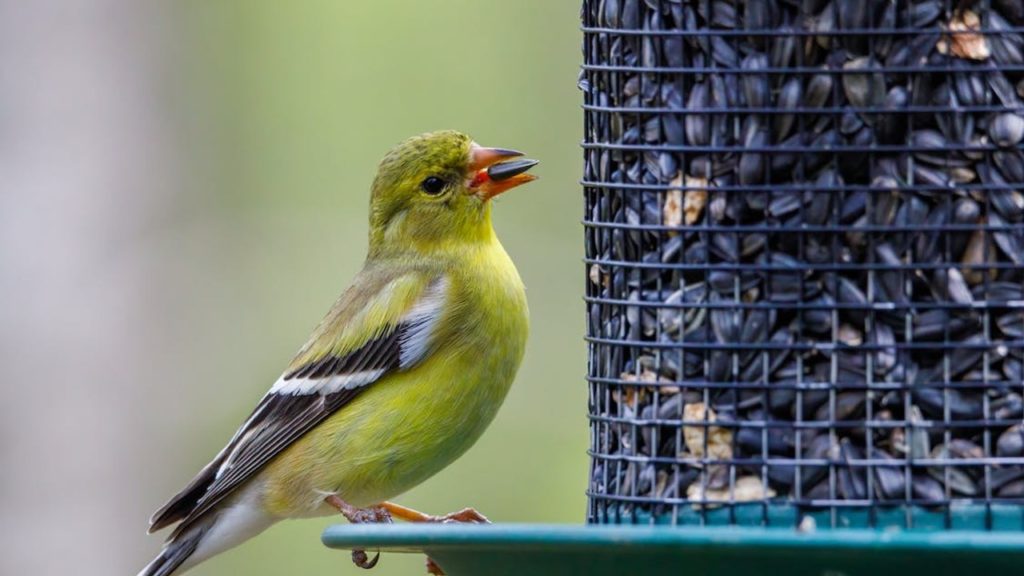
Every season brings unique opportunities to attract fun-flying fowl, and Fall is no exception. Having colorful, backyard visitors throughout the autumn and winter months requires planning and tasks, but their presence creates an environment full of wildlife and energy. Many experts might disagree as to whether or not backyard bird feeding will help wild bird populations, however feeding them during the colder months of the year will definitely benefit your neighborhood birds.
Is it necessary to feed birds year-round?
Birds can certainly be fed year-round, however bird feeding is most important during when they need the most energy and when natural seed sources are lacking. The colder days of late fall and winter offer a prime time to feed birds. This is also a good time to feed migratory birds, as these species will require plenty of protein rich fuel, such as suet, sunflower and thistle for long flights. Fresh water is always important, regardless of the months, but remember to check water levels if freezing temperatures persist.
Where should I place my bird feeder?
Wild birds are likely to eat where they feel safe from predators such as dogs and cats.
Locating bird feeders 10-12 feet from evergreen trees, bushes, or brush piles acts as a general rule. Birds can quickly fly 10-12 feet to reach safety. Further ideas might include securing chicken wire around ground-level feeders.
Windows can be another problem for birds, so placing bird feeders more than 30 feet from windows or alternatively placing feeders closer than 3 feet to a window. A bird feeder located more than 30 feet from a window will not create confusion from reflections, while a bird feeder located closer than 3 feet prevents a bird from building up too much speed for a collision.
Many birds will choose to feed at different levels/heights. Mourning doves, sparrows, towhees and juncos prefer ground level feeding, while cardinals, finches and jays enjoy table height feeding. Goldfinches and chickadees prefer hanging feeders, while woodpeckers, nuthatches and wrens like tree trunks.
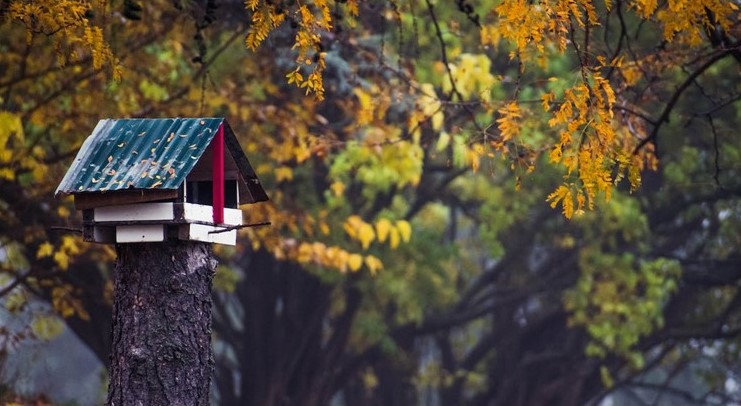
How do I select the best bird feeder?
Selecting the perfect feeder for your visiting feathered friends will depend on the space you can provide for their feeding, where you want to view them from and what seed you will be using. Platform, house, tube or niger/thistle feeders will need to have something to suspend them from in order to keep your birds safe from predators and to keep the squirrels and chipmunks from eating all the food. An in ground or clamp on shepherd’s hook is the perfect support for most hanging yard or deck feeders. If your space is limited you can use a suction cup feeder that attaches right to a window. This type of feeder gives you a front row seat to your birds comings and goings. If you are using Niger seed its best to have a special niger feeder. This kind of feeder has small mesh openings to keep the tiny seeds from pouring out. Whatever feeder you decide to use, it is important to be able to clean your feeder thoroughly and regularly to prevent the spread of disease and provide your birds with only the freshest seed.
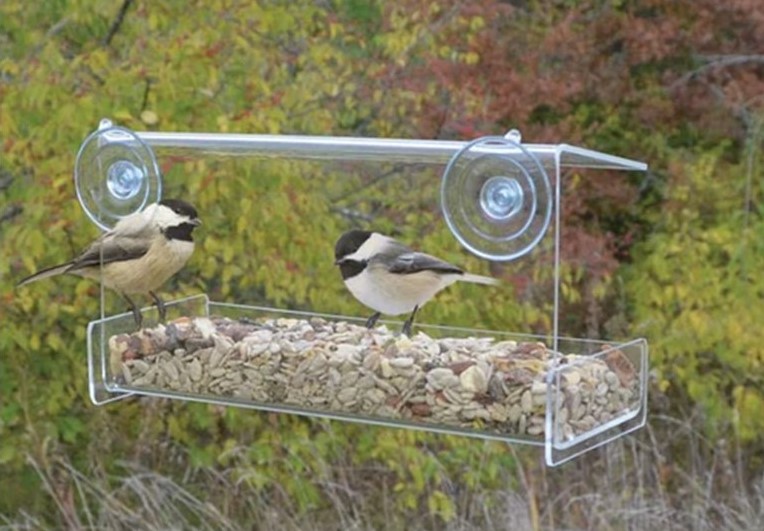
What about providing table scraps for bird food?
Human foods such as fresh or stale bread offer no nutritional value and molded breads can cause illness. Table scraps attract rodents, which can add additional issues to your home and cause harm to birds. Toxic foods, such as chocolate can cause death to birds, just as it can to cats and dogs.
What is the best choice of bird feed to use?
Choosing the right bird seed or mix is important for keeping your visiting birds happy and healthy throughout the year. Sunflower seeds are a high protein seed that is the base for most bird seed mixes and a favorite of many birds, large and small. While whole sunflower seeds are attractive to larger birds because they can easily crack the hulls with their strong beaks, hulled sunflower seeds are an easily accessible high protein source for smaller birds.The debris of sunflower hulls is toxic to grasses and plants that may grow around your feeder. Using pre-hulled seeds will keep your garden clean and green. Niger seed, a good substitute for our native wild thistle, is seed found in many wild bird seed mixes. This high oil content seed is a favorite of wild finches. This seed is not a favorite of larger birds or squirrels, so if you have issues with squirrels and bluejays cleaning out your feeders this would be a good seed choice. This tiny seed does best to be served out of a special wire niger seed feeder or thistle sock as it has a tendency to run right through most regular feeders. Other bird favorites found in bird seed mixes include millet, dried fruits and peanuts.
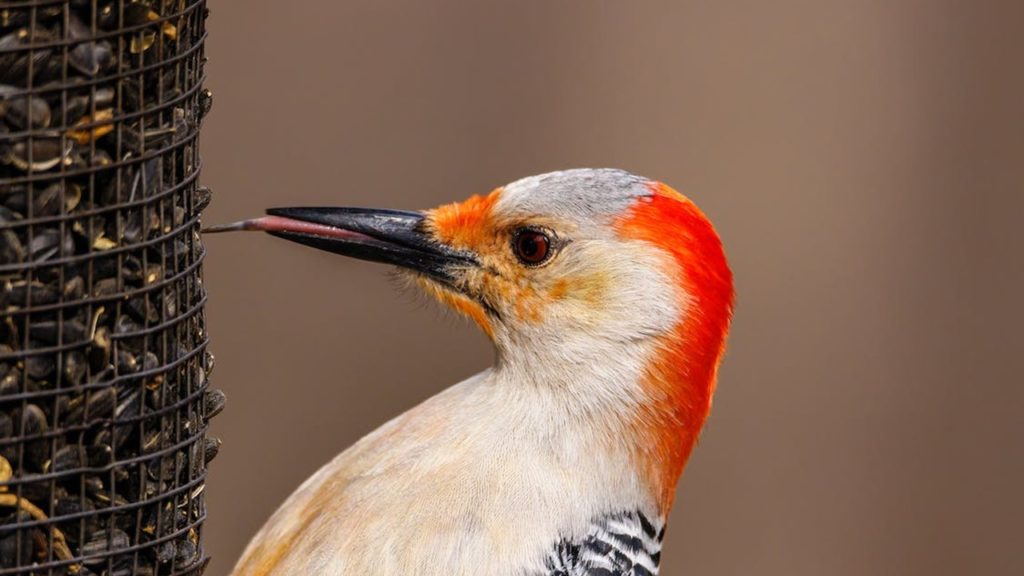
Fifth Season Gardening carries a great selection of Cole’s wild bird seed products that will appeal to most of the birds you might see in your neighborhood. Coles bird seed mixes are made from all natural products, no added fillers, synthetics,chemicals or artificial flavorings.
Coles Finch Friends is a mix of hulled sunflower and niger seeds that, because of the mixture, can be used in a conventional feeder. This mix is perfect for attracting most smaller birds. For birds that prefer fruits and berries the Nutberry suet Blend is a blend of hulled sunflower seeds, peanuts, dried berries, dried fruits and suet kernels. Because of the hulled sunflower seeds this is a good no mess mix, perfect for use on decks, balconies and in yard feeders. This bird feed is the perfect trail mix for a wide variety of songbirds. The Coles Hot Meats is a hulled sunflower feed with habanero peppers added to it. Some birds are attracted to hot peppers, squirrels are definitely not. Hot pepper is a good source of vitamins A and D for wild birds. Vitamin A helps birds with the production of strong feathers. This is a good healthy, no mess, no waste seed mix that will keep squirrels from invading your feeder. The Coles Blazing Hot is another hot, squirrel resistant mix with whole as well as hulled sunflower seeds, cracked corn and habanero peppers, designed to attract large as well as small song birds. The Coles Blue Ribbon blend is a high grade, protein rich complete mix of sunflower seeds, millet and cracked corn specifically formulated to attract the greatest variety of birds.
To complete your bird setup you may want to hang a suet cage. Suet provides much needed extra calories for winter birds to help them weather the stress of cold. Coles offers a bunch of good suet blends formulated to nourish a variety of birds such as woodpeckers, nuthatches, wrens, chickadees, cardinals and bluejays.
Come by to see us and we can help you plan your bird buffet! Best of luck and your birds with thank you!
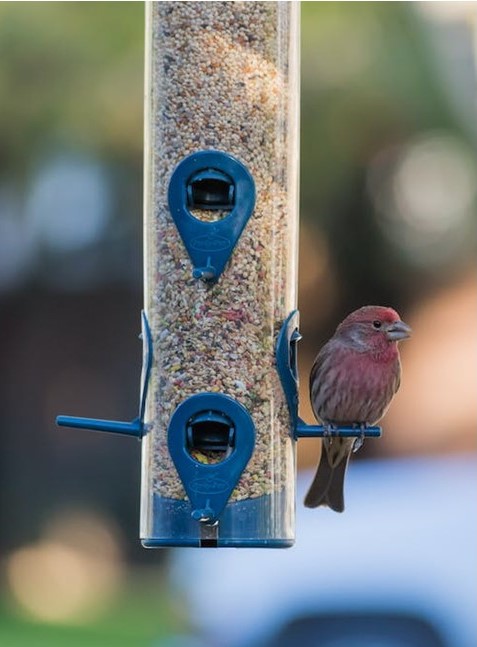

Leave a Reply